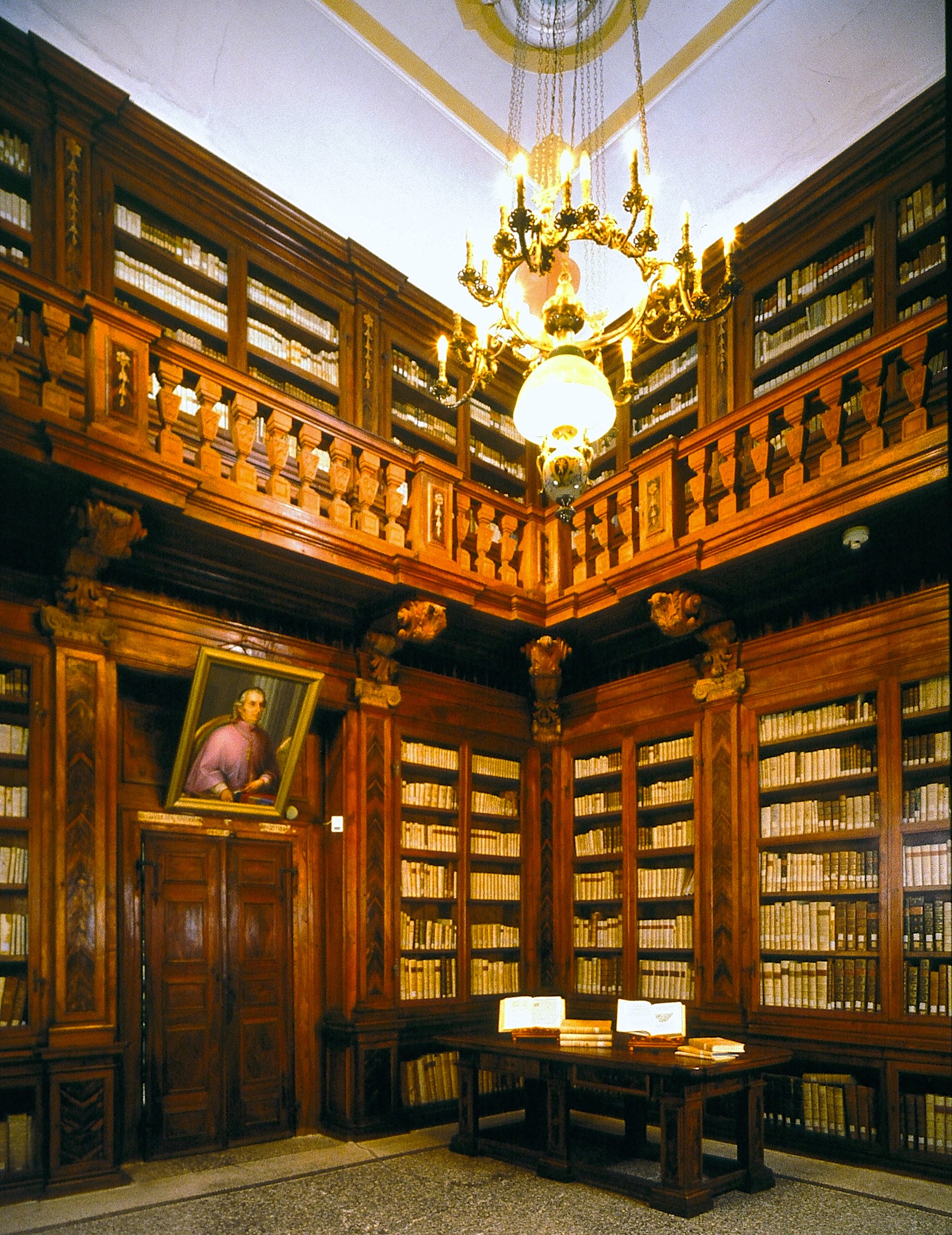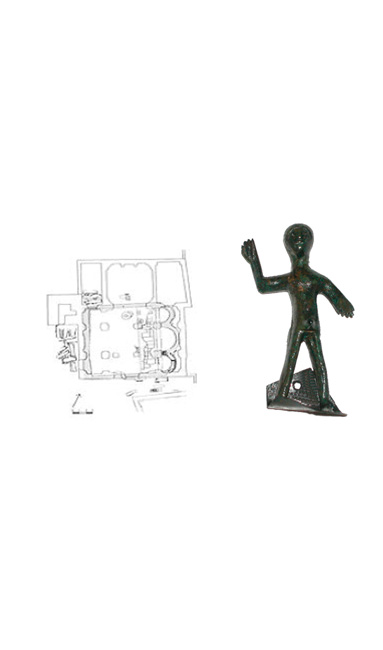
XI B.C.
Archaeological investigations of the Church of San Daniele in Castello indicate the use of pigs for food as far back as the protohistoric period, between 1100 and 800 B.C. Pig farming and slaughtering developed during the Middle Ages. Pork became more and more important in the diet of the people of Friuli.
1063
THE SAN DANIELE MARKET
San Daniele was ruled by a feudal patriarch for over seven centuries, which contributed to much of its success and prosperity. It was the patriarch who granted San Daniele the privilege of holding a market, with the earliest evidence of a free trade zone dating back to 1063. This privilege was later confirmed by Frederick II in 1232.
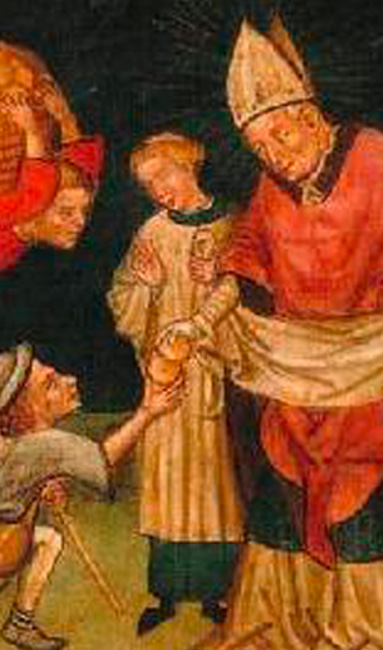

1453
DE CONSERVANDA SANITATE
In the manuscript entitled De Conservanda Sanitate dated 1453, now held in the Biblioteca Guarneriana, doctor Geremia Simeoni, while considering meat difficult to digest, states that “of the domestic pigs… the lean parts, preserved with salt, can be consumed as a starter”. An age-old tip on how to enjoy prosciutto.
1563
SAN DANIELE’S GIFT TO THE COUNCIL OF TRENT
It was reported in the chronicles of the Council of Trent that when the prelates gathered they ate “thirty pairs of prosciuttos” (twelve of which were donated by the Patriarch of Aquileia) which had been delivered by mule to Trento from San Daniele, according to a document dated 1 July 1563.
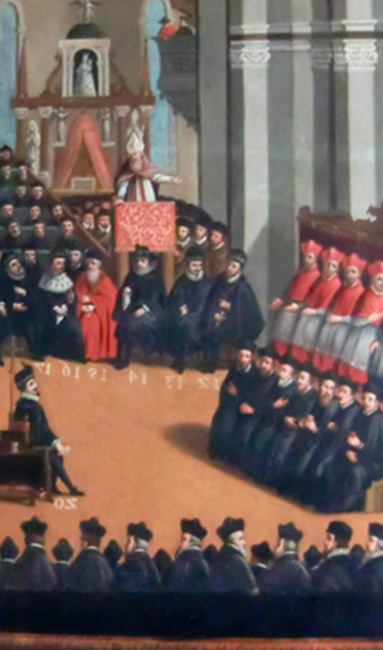
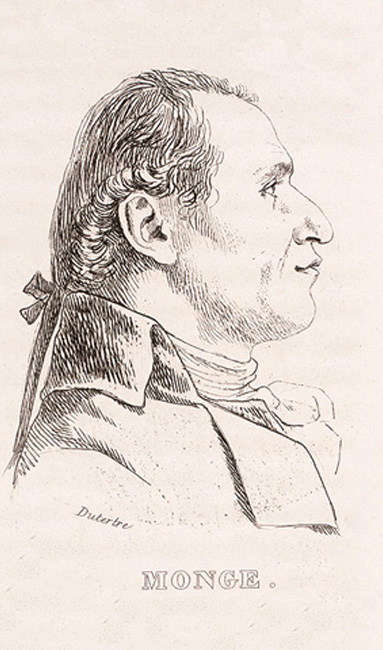
1798
The officers of the Napoleonic army recognise Prosciutto di San Daniele as enough of a delicacy to plunder it in large quantities, along with other “jewels” held in the Biblioteca Guarneriana.
1886
After the annexation of Friuli to the Kingdom of Italy, Prosciutto di San Daniele is shipped all over the Kingdom and to the European Courts.

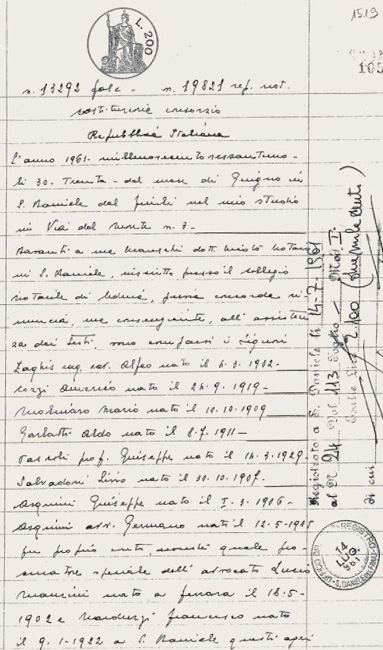
1961
The Consortium was set up in 1961 and its launch was marked by innovative ideas put forward by a small group of founders who wanted to register and publicize the brand. Even in the absence of an Italian law, the brand offered a guarantee of quality for a product that was at risk of being imitated, even though it was recognized by consumers.
1970
LEGAL PROTECTION
Law no. 507 of 4 July 1970 provided protections for the “Prosciutto di San Daniele” designation. The prosciutto’s specific classification was based on its sensory and product characteristics, qualities based on the environment and production methods.
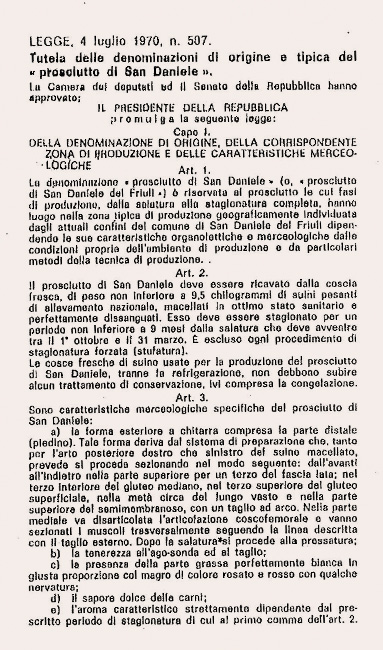

1972
The Consortium adopts the mark that distinguishes it.
1976
The city of San Daniele was badly hit by the Friuli earthquake of 1976, but it quickly resumed production activities.

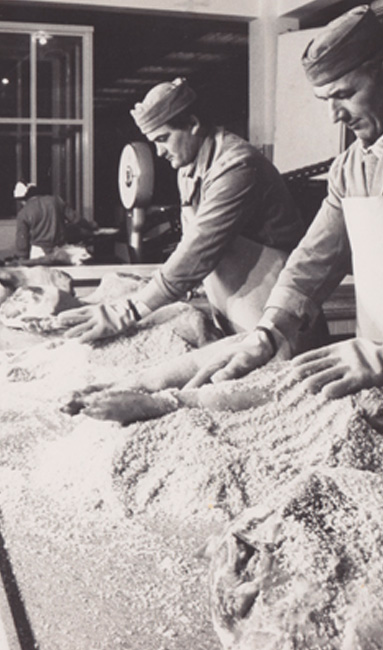
1984
The law allowing the production of San Daniele all year round is approved (up until 1983 it was limited to the winter period).
1985
FIRST “ARIA DI FESTA” FESTIVAL
The famous “Aria di Festa” prosciutto festival was started in conjunction with the Prosandaniele association. It placed great emphasis on understanding how to appreciate the product and raising awareness of the local area.
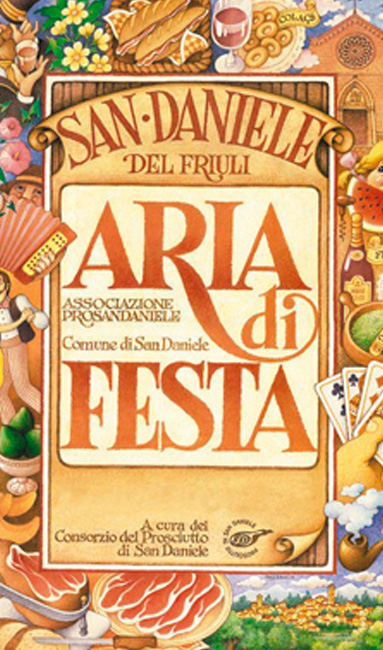
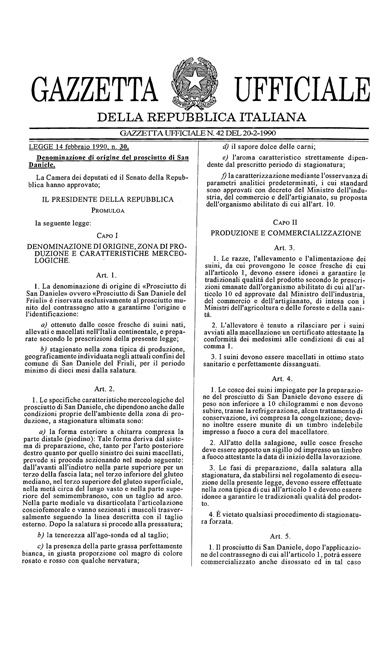
1990
COMPULSORY BRANDING FOR THE DESIGNATION OF ORIGIN
With the introduction of the new Law no. 30 of 14 February 1990, it was confirmed that every prosciutto must bear a seal or firebrand attesting to the date on which processing commenced. It also emphasized that every phase of the prosciutto’s preparation, salting and maturation must be done in the San Daniele area. Improper use of the San Daniele name was prohibited, and legs could only be sold after they were branded.
1996
REGISTRATION OF PROTECTED DESIGNATION OF ORIGIN
With Regulation no. 1107/1996 of 12 June 1996, the designation “Prosciutto di San Daniele” was registered as a Protected Designation of Origin (PDO) in the first list adopted by the European Commission under the new EU regulation on protecting designations of origin. Exports were increasing and the first shipments to America were sent at the end of 1996.
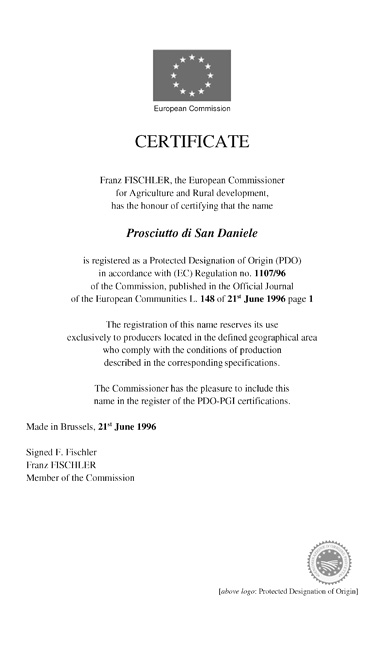
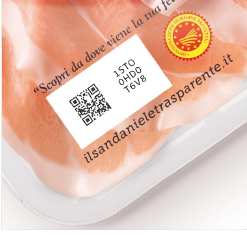
2019
The system of unique traceability of each tray of pre-sliced Prosciutto di San Daniele was introduced.
2020
Historic turning point for San Daniele ham. The Consortium updates the PDO processing rules: consumers, animal welfare and brand protection at the center of the changes


